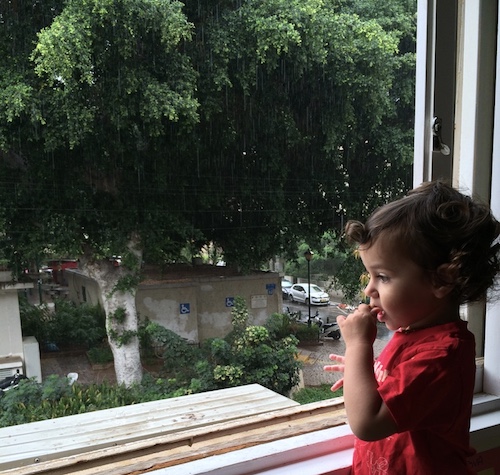The Perception of Time in Dance and Parenting by Ori Lenkinski

*originally published in Hebrew in Haaretz
One of the things I love most about dance is the way it distorts my perception of time. On stage, time is stretched far beyond its usual limits. There is time for everything, for thinking, feeling, moving, connected, making decisions and renewal. A short piece can encapsulate an entire world if approached correctly. In his book Blink, Malcolm Gladwell writes of this phenomenon regarding athletes.
“The basketball superstar Larry Bird used to say at a critical moments in the game, the court would go quiet and the players would seem to be moving in slow motion.”
In Gaga, the movement technique and language developed by Ohad Naharin with Batsheva Dance Company, the idea of “plenty of time” comes up often. So often, we feel like there isn’t enough time for that. Even in our leisure activities, there is a tendency to rush. As someone who experiences life as a high-speed sequence of events, the opportunity to zoom in, slow down and focus on the moment is a welcome and needed change.
In my experience, children also affect the perception of time.
Where dance spreads mere seconds out over unfathomable stretches, parenting crunches it down. One expands while the other contracts. Similar to a video-editing software, dance splays out a short period while parenting shrinks life it.
When I remember the first year of my daughter’s life, I remember instances. I remember the moment she was born followed by looking down into her crib then her sitting up for the first time in the park. Her life paved a long path and when I glance back at it, the individual rocks that comprised the road blend into one smooth track. Perhaps there are a few stones jutting out here and there, those moments the memory catches on like her first high fever, the time she swallowed something in the park she shouldn’t have, her first laughter and the period in which “eleventeen” was part of the numerical climb to twenty and “bubble-you” and integral element in the alphabet.
I think this has to do with the duration of events.
Performance is, at its heart, ephemeral. It is momentary. It is about a specific instance that will never repeat. The heart, in filling up on the moment, knows it will have a small share of this joy and so it hangs onto every particle.
Parenting is a durational act. There are little to no breaks, the journey goes on at all hours, for days and weeks and years on end (or at least we hope and wish that it will). At once, I can look at my seven-year-old, remember her as a baby and imagine her as an adult. Time spins into itself, splays forward and dives backwards. The emotions are so overwhelming that the memory condenses. The heart balloons out, rises up and hovers above our lives, buoyed by the passing of time.
One sensation is not preferred to the other. They are both interesting mutations of time, alterations that inspire consideration, that allow for a break from the regular and routine and become extraordinary.
